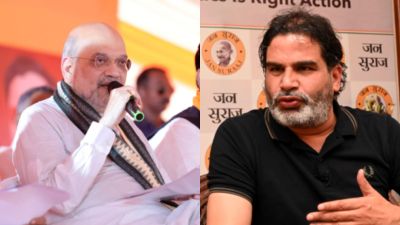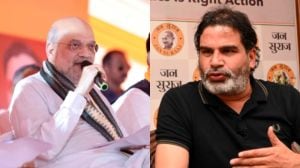Gorbachev downbeat as Czechs, Slovaks mark Velvet Revolution
PRAGUE, NOV 18: The Czech Republic and Slovakia on Wednesday marked the 10th anniversary of the `Velvet Revolution' with a gathering of t...

PRAGUE, NOV 18: The Czech Republic and Slovakia on Wednesday marked the 10th anniversary of the `Velvet Revolution’ with a gathering of the world leaders who were in power as the Cold War came to an end.
Former Soviet leader Mikhail Gorbachev sounded a pessimistic note at the celebrations at Prague castle by criticising Western leaders for wanting to "impose NATO as the only saviour". "NATO caught the victor’s disease, tearing up not only the Paris Charter, but also attacking the UN and the Security Council. The strategy of creating a European security system has been rejected" he said.
Gorbachev refused to share his fellow guests’ optimism at a public debate. Alongside Czech President Vaclav Havel were former US president George Bush, former German chancellor Helmut Kohl, former British premier Margaret Thatcher, former Polish president Lech Walesa and former French president Francois Mitterrand’s widow, Danielle.
The Paris Charter for a new Europe, signed by 34 states in 1990, aimed to define a newera of democracy, peace and unity in Europe. Later in the debate, Gorbachev said: "If Kosovo becomes a model for solving problems there will be no stone Left standing in our world." He warned against "the illusion that Europe could become unified and stable without Russia, or even against Russia".
Elsewhere in Prague, a bronze statue of Britain’s World War II prime minister Winston Churchill was unveiled as part of the festivities. The statue is an exact copy of one located in London near the Houses of Parliament.
During the inauguration ceremony, Czech parliament speaker and former prime minister Vaclav Klaus praised Thatcher’s contributions to the demise of the Iron Curtain in eastern Europe. About a dozen extremist Communist protesters tried to interrupt Wednesday’s anniversary celebrations in central Prague on Narodni street, the same spot where a crowd of 15,000 young people gathered on November 17, 1989 to demand democracy from their Communist rulers, sparking the start of what became known as theVelvet Revolution in the then Czechoslovakia.
The protesters quickly dispersed Wednesday after Prague residents celebrating the event booed them, the public Czech radio Radiozurnal reported. The end of Communist rule was followed three years later by a "velvet divorce," in which the federation formed by the Czech and Slovak people 75 years earlier fell apart under the pressure of nationalist aspirations.





- 01
- 02
- 03
- 04
- 05


























